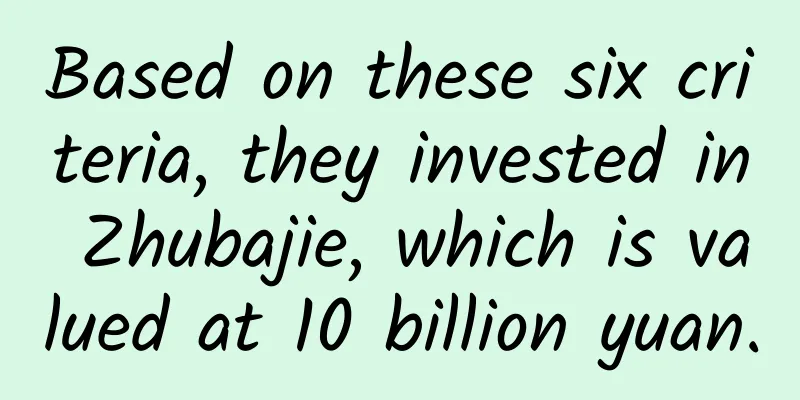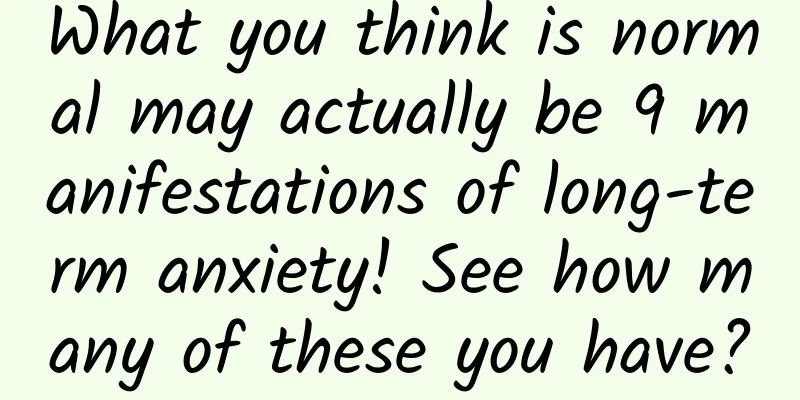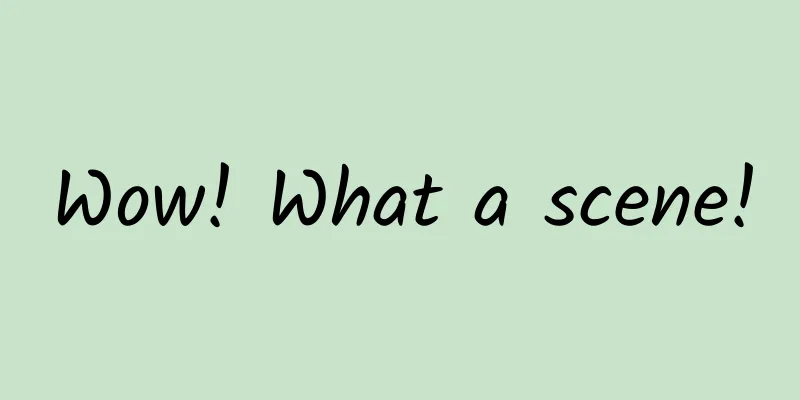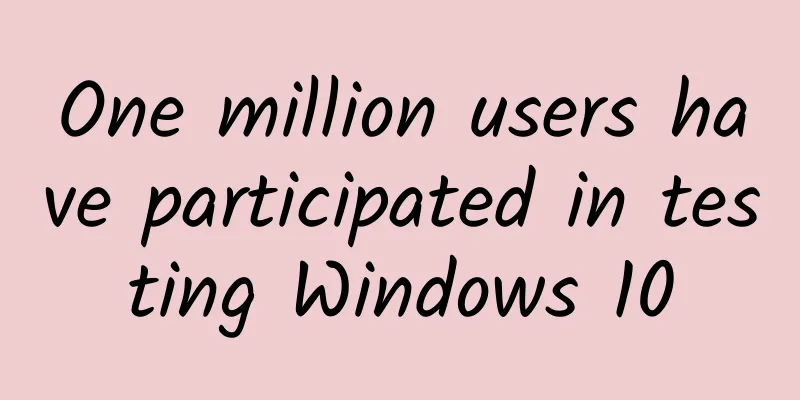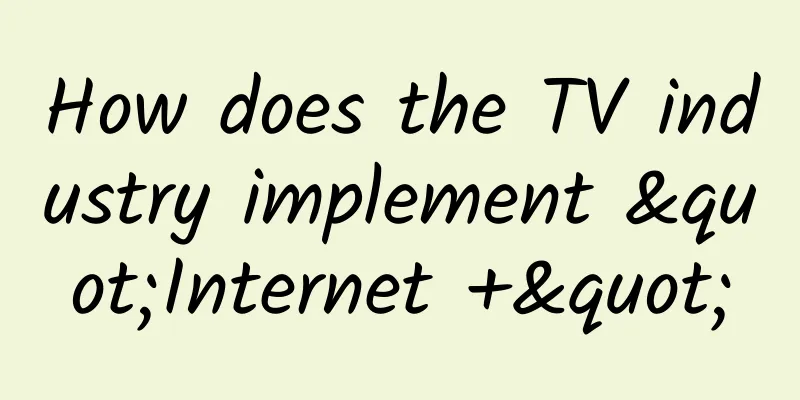These 3 subconscious behaviors mean you are bullying yourself, please stop immediately!
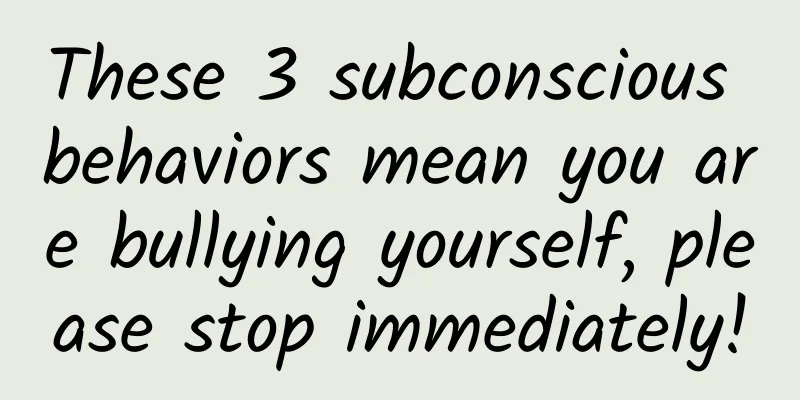
|
What should we do when we are bullied? Some people may choose to fight back, some may seek support, and some may just turn around and run away... But what should we do if the person who bullies you is yourself? What happens when we bully ourselves? Copyright images in the gallery. Reprinting and using them may lead to copyright disputes. What is self-bullying? Bullying is when one party displays their ill will towards another. Whether it is physical attack with punches and kicks, verbal attack with harsh words, or relational attack with neglect, rejection, and spreading rumors, it will cause great harm to the bullied. However, self-bullying may be more harmful than being bullied by others, because when facing external bullies, we have the right to resist, but when facing the inner bully, we can only do nothing but be bullied. Self-bullying refers to a behavior that undermines oneself. You don't deserve it, you are wrong, you are not good, you haven't done enough, these are the mantras of the inner bully. Those silent but harsh insults are like invisible but fierce slaps on your body and heart. This is the usual method of the inner bully. Constantly belittling yourself, saying bad things about yourself, minimizing the weaknesses of others and magnifying your own weaknesses. No matter how much you have accomplished, you still feel that you have not done enough and are not worthy... In essence, this is a self-attack because you are actually hurting yourself. However, it is difficult for us to avoid this kind of harm, because the bully hidden in our hearts has a natural advantage. It is not as blatant as the bullies outside, and the reasons for harming are more high-sounding: bullying by others will be disguised as "playing between friends", and self-bullying will be covered up as "self-encouragement". The inner bully lurks deep in our minds, quietly destroying our emotions and behaviors, making you unable to see the problem or the truth. Even if you are wronged, you have nowhere to cry, and "silence is golden" becomes the only creed. Self-bullying It is a wrong association learned from childhood Investigations and studies have found that many people, when faced with bullying, do not blame the bully. Instead, they tend to blame themselves for not being good enough, not being brave enough, being too weak, or even believing that they are the root of the problem. Holding on to the false belief that "the victim is guilty," they inflict "secondary harm" on themselves in a more harsh, authoritarian, and picky manner. Frustration-aggression theory states that when we are frustrated or attacked by others, we tend to inhibit direct revenge, especially when faced with power imbalances, the possibility of more severe consequences or accusations from others. At this time, we will transfer our hostility to a relatively "safe" object. The most classic example is a joke that is circulating online: a husband got mad at his wife at work, and when he got home, he lost his temper at his wife. The wife silently endured the grievance and dissatisfaction for the sake of family harmony, but when she was helping her child with homework, she got furious because of a typo. The child, as the weakest in the family, faced the sudden attack, and had nowhere to vent his confusion and anger, so he could only bully himself. Because, what object is safer than "self"? People who bully you may threaten you out of fear of condemnation or punishment: "If you tell others, you'll be dead!" When we bully ourselves, our inner bully often has no scruples: "No one will believe it if I tell others!" When we are bullied, if we can't find a suitable way to release these negative emotions, we can only point the spearhead at ourselves. The core emotional experience of "self-bullying" is "helplessness", and "helplessness" is often the root cause of "self-bullying". "The crying child gets the milk" is a truth that every newborn understands. It is an internal operating mode engraved in the genes. John Bowlby, a famous attachment theory researcher, proposed that the internal operating mode is related to a child's internalized understanding of who he is and how to adjust himself to fit into the surrounding social environment. For newborns who are powerless, "crying" is an important means for them to get attention, or even the only means. If "crying" can get a response, they can eat enough, wear warm clothes, and be comforted, then they will associate "crying" with "food" and "warmth", and they will also associate "the world" with "safety" and "friendliness". Slowly, as they grow older, gain more experience, and have more abilities, "crying" will expand to "expression", "communication", "interaction", etc. On the contrary, when children's needs are not met, their internal operating mode will continue to operate, but the logic of the association becomes: "crying" is useless, and no matter how loud they cry, they will not get the response they want or the satisfaction of their needs. Gradually, they give up "crying", "expression", "communication" and "interaction" and other "ineffective" methods. Similarly, people who are used to self-bullying often establish a set of wrong associations: when I do "this", "that" will immediately appear, and it happens every time, so I have formed the habit of "doing this". For example, in some TV dramas, when parents have a dispute, some mothers/fathers will say to their children: "It's all your fault. If I hadn't given birth to you, I wouldn't have to suffer this!" Then, the child will realize a "fact" that parents quarrel because "I am not good", and mother/father suffers because "I exist". Over time, children learn that "pointing the finger at oneself" is an "appropriate" way to deal with the world, and it is an indispensable way. As the social circle expands, this pattern gradually generalizes. No matter whether others are unreasonable or intentionally hurtful, it is my problem, and "I" become the one who is most justified in hurting myself. If the following behavior occurs It means you are probably bullying yourself. When we are too tired from work and want to relax, the inner bully will jump out and accuse you of not working hard enough; when we achieve our goals and want to buy a cake to reward ourselves, the inner bully will show up and question why you have the right to slack off. The harsh voice inside us will constantly push, pressure, judge and deny ourselves, making us feel miserable, as if no matter how hard we try, we can never meet that ever-demanding internal standard. Sadly, we often mistake this voice for "self-motivation" and mistakenly believe that it is the driving force that pushes us forward. However, the truth is that this "self-motivation" may be the sheep's clothing of our inner bully. 1. Labeling yourself is like being nicknamed by others. Our brains naturally like to take shortcuts, which is why we like labels. I am an "i" person and you are an "e" person, so we can quickly find a group of like-minded people and save a lot of energy in the early stages of exploration. However, labeling is often based on the underlying logic of "all or nothing": I am an "i" person, so I guess it is difficult to have a good conversation with an "e" person, and I am "weak", so I don't have the courage to resist. One of the common tactics of bullies is to give people nicknames, categorize people, cover up all of a person's characteristics, define the other person with a defect, a label or a derogatory word, thereby undermining their personal value and using depersonalization to achieve the purpose of ridicule or humiliation. When we label ourselves with negative labels such as "I'm a fool", "I'm a failure", "I'm not good enough", "I'm bound to screw up", etc., we are actually bullying ourselves. We trap ourselves in the cage of labels and begin to define ourselves, explain ourselves, and guide ourselves according to the labels, while also humiliating ourselves. 2. Feeling that you are unworthy is like having your pocket money taken away When we bully ourselves, the bully in our heart often threatens us like this: "With all that fat on your body, how can you even eat lunch! You don't deserve to eat the cake, not even a bite, or you'll be in trouble!" or "If your colleague likes you, just give her up. Why are you being so pretentious? Is it worth getting so angry about?" These inner voices are like an invisible knife, cutting our self-esteem and self-confidence, and making us struggle in self-doubt and denial. 3. Frequently scaring yourself is equivalent to being threatened in person “If I can’t finish it on time, I’m dead.” “If I screw up, I’m finished.” “No one will like me if I don’t obey.” Do you often intimidate yourself like this? When such voices echo in our minds, we feel as if we are tightly entangled by an invisible bully who keeps whispering in our ears, causing our anxiety, uneasiness and fear, gradually eroding our courage, and making us timid, fragile and negative. Note 2 points Stop Bullying Yourself The inner bully and the outer bully use similar methods to bully others, but the inner bully is more unscrupulous and lawless because no one will blame or discipline him. The inner bully will not have any guilty conscience or hesitation. It uses our fear of failure, worry about not being accepted, and doubt about our self-worth as its weapons to constantly attack us. Our experiences make us who we are, and our inner bully is often a product of past hurts, setbacks, and negative experiences. But just like we stand up to the bully and oppose the bullying behavior, we also have the power to stand up to our inner bully and refuse to allow it to continue to control our lives. 1 Silence your inner shamer Healthy self-reflection allows people to focus on correcting mistakes in current tasks and thinking about how to do better in future actions. On the contrary, unhealthy self-reflection is like an inner humiliator, constantly shrouding us with the fear of "you are not good enough" and disguising it as a "whip" through ruthless self-attack. The former is self-criticism, focusing on specific behaviors, aiming to find solutions to problems and promote personal growth; the latter is self-humiliation, focusing on personal attacks, often manifested as "labeling", such as "I am a loser" and "I am useless", etc. Therefore, when you notice that your thoughts begin to slide into these self-humiliations and involuntarily label yourself negatively, please stop immediately, take a deep breath, and then be your own "mouth replacement" to shut up the humiliator in your heart. 2 Stand up and be your own hero Self-bullying is essentially a traumatic connection between the self and the self, and also a self-toxic relationship pattern. For people who have experienced trauma, traumatic connection seems to have become a painful but familiar way of survival that is difficult to give up; and for individuals who are accustomed to being bullied by others, they often tacitly accept the identity of helplessness and victimization in their hearts, and then internalize this bullying and turn it to themselves. In self-bullying, the individual is both a perpetrator, inflicting harm on himself; a victim, enduring inner pain and suffering; and a bystander, watching his own predicament with cold eyes but unable to change it. In bullying, perpetrators, victims, and bystanders form a strange symbiotic relationship that is like an invisible web that entangles everyone. The key to breaking this vicious cycle is to cultivate empathy, the ability to deeply understand and sympathize with the suffering of others. Only through empathy can we penetrate the surface of bullying behavior, touch the complex emotions and motivations behind it, and find a way to crack it. Empathy not only broadens our tolerance and understanding, but also awakens the kindness and justice in our hearts, driving us to stand up and say "no" to both external bullying and internal self-bullying. Therefore, let us try to care for ourselves with the warmth we show to our best friends, and ask softly: "What do I need most at this moment?" Use the love and patience we give to our friends to give ourselves enough empathy and care. Scientific research has confirmed that self-care is far from simple self-consolation. It can effectively suppress inner self-blame and criticism, help us to be more resilient in adversity, and cherish ourselves in a deeper way. In the face of self-bullying, we should stand up bravely like our friends, stand up for ourselves, and be our own heroes. Conclusion If we cannot stop ourselves from attacking ourselves, it will be even more difficult to resist attacks from the outside world. Self-bullying is like an endless inner war, which consumes our energy and weakens our resistance. In this war, we are both perpetrators and victims. Every self-criticism and self-humiliation is a heavy blow to the heart, making us more vulnerable when facing external challenges. Therefore, to resist external attacks, we must first stop bullying ourselves. We need to learn to listen to our inner voice, understand and accept our own imperfections, and replace blame and criticism with tenderness and care. Only in this way can we become truly strong and face the challenges of life with a more resilient attitude. References [1] David Myers. Social Psychology (11th edition). Beijing: Posts and Telecommunications Press Co., Ltd., 2016. [2] Graham Ramsden. What are kids thinking when they bully other kids: A look at school bullying from the perspective of developmental psychology. Beijing: Beijing Daily Press. 2022. [3] Cecil Alix. Silent Thirteen: School Bullying from the First Person’s Perspective. WeChat Reading Publishing. 2024. [4]How to Stop Bullying Yourself: Get Rid of Labels | Psychology Today [5]Your Own Worst Enemy: Self-Bullying - 360 Psyche [6]Why No One Deserves Your Compassion More Than You Do | Psychology Today Planning and production Author: Su Jing, National Level 2 Psychological Counselor Reviewer: Fan Chunlei, Associate Researcher, Institute of Psychology, Chinese Academy of Sciences Planning丨Zhong Yanping Editor: Zhong Yanping Proofread by Xu Lailinlin |
<<: How does noise, the "big devil" of sound, break people's defenses?
>>: I heard that the "bird" in "The Book of Songs" flew back to Henan!
Recommend
Planning and creating popular notes on Xiaohongshu!
As one of the social platforms, Xiaohongshu has n...
Douyin Juliang Qianchuan activation process
To open a Juliang Qianchuan account, you need to ...
Tips for breaking 1 billion GMV in live streaming!
Many people may think that a set of gameplay must...
Xichengyun "Pinduoduo Hot-selling Practical Training Camp"
Course Catalog ├──00. Pinduoduo's hot-selling...
Nezha of the people, created by the people! An open letter from Nezha Auto's Zhang Yong to users
On June 22, Nezha Auto held a "Creation"...
To promote on Baidu, Tencent and Toutiao, master these two skills!
I don't know if you have ever wondered about ...
Half of UK users are affected by wireless router settings, which pose security risks
Recently, cyber attacks on home wireless routers h...
Honor Band Zero SS version review: unique appearance, details need to be optimized
Tencent Digital News (Yokii) Since this year, as ...
Case | Analyzing the effective marketing strategy in the early stage of a product
Marketing is nothing more than three things: conn...
Uncover the secrets of Tik Tok’s explosive growth and addiction!
In the past six months, especially during the epi...
5 links to sort out the B-side product operation framework
Currently, many companies that develop B-side pro...
How to check personal credit information on mobile phone? How to check personal credit by mobile phone
How to check personal credit information on mobil...
Can soil carbon storage combat climate change? The answer is more complicated than you think
Plants convert carbon dioxide into roots, stems, ...
The long-awaited Windows version of WeChat
WeChat for Windows is finally coming out. Mac use...
How much does it cost to make the Aral Logistics Mini Program? What is the quotation for the development of the Aral Logistics Mini Program?
How much does it cost to make the Aral Logistics ...

